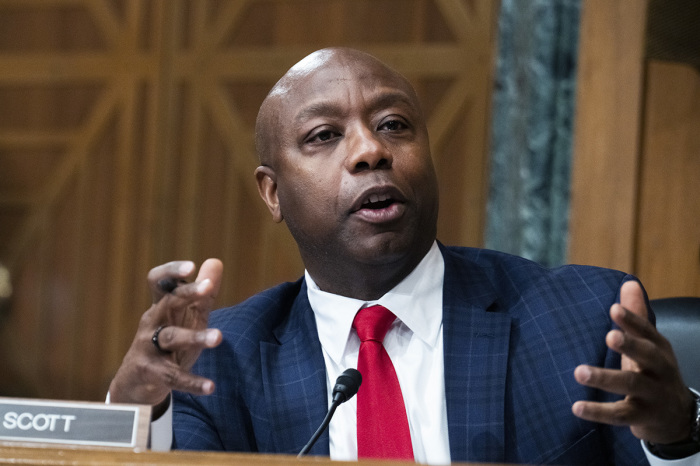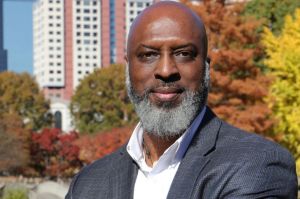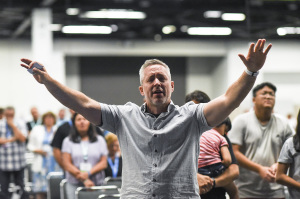'A Redemption Story': Sen. Tim Scott discusses America's quest for a 'more perfect union'

South Carolina Sen. Tim Scott’s memoir, America, a Redemption Story, details stories of failure and rising above challenges from the senator’s own life to represent America’s constant search for identity and potential for redemption.
The 56-year-old South Carolina native assumed his senate position in 2013 and is on the ballot in the general election in November. He previously served in the U.S. House of Representatives, serving South Carolina’s first Congressional District from 2011 to 2013.
After then-Gov. Nikki Haley appointed the senator to serve the remainder of Sen. Jim DeMint’s term in 2013, Scott became the first African American senator to represent a southern state since Reconstruction.
Scott was later elected to the Senate in a 2014 special election.
The book takes readers through Scott’s childhood in a single-parent household and growing up in poverty to his opening of a small business and eventual political career. Describing his struggles with racism — both from people who look like him and those who don’t — the senator insists that America is redeemable, calling for people to overcome political differences and not allow things like race or politics to divide them.
The following is a lightly edited transcript of the senator's interview with The Christian Post:
CP: Now the title of your memoir is America, a Redemption Story. Can you explain how you come up with that title?
Scott: Two reasons for the title; number one is certainly in the story saying, as you can see, I think that faith and the Judeo Christian foundation that is ours as a country is incredibly important to this nation. The story of redemption, in my opinion, is so often the story of second chances. You don't go from being a good person, from a bad person to a good person; you go from being a dead person to alive. And so the story of redemption is a story of second chances. And the one thing I see woven throughout the story of America is this notion of second chances that we wrote a Constitution. We left me as three-fifths of a person, but then we went back and got it right through Civil War and through amending our Constitution.
Our birth certificate, or the Declaration of Independence, said that we were all created equal, basically, and given intrinsic value. That notion was right, even though our Constitution had it wrong. So again, you can see the importance of a second chance as a nation that we went through, whether it's the Jim Crow South or the hard times in the 1960s, that we've always had to overcome obstacles in our lives as a nation, rather, of the Black Monday in 1987 and then the Great Depression of the 1930s, economically speaking.
We had to rise above the occasion. We've gone through a couple of world wars where we, as Americans, gave the world a second chance because of our investment in World War II. So you see again and again that the story of redemption, the story of second chances, is woven into the fabric of who we are as Americans. I certainly have seen it play out in my life, not just my faith perspective but also in politics, where I lost a race but the voters of my state gave me a second chance. And as a freshman in high school, I basically failed four subjects, but people didn't see me as a failure. They gave me a second chance in the business. I felt I just can't fail.
I got a second chance. So I believe that all of us, within a generation or two, are just like each other. That the story of America is a story of pain, then promise, obstacles and opportunities, failures and success. That's who we are as a people. I want to remind us that the goodness of the American soul. I want us to be reminded that we are one American family, and to the extent that we can see ourselves through that prism, I believe we can heal our nation of some of the wounds that today divide us.
CP: One of the things you’re very open about is some of the racism you’ve experienced throughout your life. For example, you talk about being pulled over in the 1980s and how, even today, there have been instances where you’ve been stopped by Capitol police officers while on your way to cast a vote. But you still argue that America is redeemable. How do we know if and when America can be redeemed?
Scott: I think we're being redeemed every day, so to speak. Let's be honest about the fabric that we're working with. It's called a human fabric. It's not American human fabric; it's just human fabric.
According to Jeremiah 17:9, "The depravity of the heart of the man is unknowable." It's unsearchable. So the truth is that we are the composite drawing of 300 million people who are all flawed. So, of course, we are going to strive toward that more perfect union because we care enough to get it right.
There are a lot of places, a lot of countries on this Earth, where it does not seem like they're striving for a more perfect union. I think we are the only country on Earth that I know of in my lifetime or in our lifetime as a country that fought a civil war to set the captives free, to free the slaves. So that notion of an internal struggle to righting wrong is what makes me say that America is not a racist country, though we still struggle with racial issues. We are working our way toward a more perfect union, and we are doing it imperfectly. That just means that we're even.
CP: Another thing you talk about in the book is how familial relationships and friendships have fallen apart over politics, but there is no reason for such relationships to end over political disagreements. What do you think are some of the key components of getting people to listen to one another and respect each other, even if they disagree?
Scott: One of the things that we have to recognize is that our ideology should not trump our family relations nor our friendships. The truth is that most of my life, I grew up with people who did not agree on politics. One of my mentors I talk about in the book is a guy named Ed Bryan, who is the head of the NAACP. He's a Democrat, but he is a great man with lots of integrity who, if your car is broken, you want Joe coming to fix it because he's going to fix it right, and he's going to charge you the least amount you can.”
“He is a person who has a philanthropic gene. And so, I have seen throughout my entire life the benefits of people who disagree ideologically but they continue to work hard. And it's one of the reasons why I love the statement that it is hard to hate when you know. Because the more time you spend together, the more likely you are to overcome the ideological differences.”
“Yes, I worked with James Lankford on something called Solution Sunday. Senator Lankford and I thought it would be helpful to have a meal with someone who doesn't look like you in your home, not in a restaurant. Bringing them into a place of intimacy. And intimacy also means to me, you see. And that was an opportunity for us to talk about what we've experienced together after the devastating and tragic shooting at Mother Emanuel Church.
People that came were James Lankford, who spent the night at my home, and Trey Gowdy, who drove down to Spartanburg, as well as Tulsi Gabbard, who doesn't even believe as I believe, but she was there for me. And so to see is the first group of people celebrating lives well lived and tragically at that is a part of why I'm so confident that we as a nation can get it right.”
CP: Why did you feel it was important to get this memoir out there now?
Scott: I feel like, in many ways, we're living in very divided times. The perception of who we are as Americans seems to start with this tribal characteristic. As you watch the news, whether you're watching left news or right news and one thing you're watching is a news driven by division, driven by just polarization.”
“But when you walk through the neighborhoods, you see kids playing with kids that don't look like you. When you attend many of our schools, you see kids hanging out with kids that don't look like them. When you look at the marriages around the country, you see interracial marriages, and you see even in South Carolina, you see some of the strongest intermarryings between Clemson fans and Carolina fans. So you get a game dog and a tiger to fall in love and get married then all things are possible.”
“But the truth is, you literally see around the country this patchwork quilt that has been woven together by the thread of love and freedom and this thirst for liberty. The liberty to express yourself as an individual. We protect that. We insulate that. I just think that we have a lot more of that to do, and it's our responsibility to keep it alive for the next generation.”
CP: You talk about it in the book, but could you expand on your experiences as a conservative senator who happens to be African-American and what that has been like for you?
Scott: It's one of the things I say is that being a living unicorn is a painful decision on my part. I've experienced the most forms of discrimination from people who look like me than from those who don't.”
“But the truth is that when I talk about that partisan dividing line as it relates to discrimination, it's really important for us to take note that the racism that we've hated as victims in one generation should be the same hate for discrimination that we are now seeing from a partisan perspective. I believe that while my faith defines me first, I think, at the very least, our collective citizenship as Americans should define us first and that if you want to find that common sense, it requires a common understanding of citizenship where our country is quite diverse, but we are one family. And unfortunately, a lot of those who oppose me politically have been more angry and hostile than those who I experienced in high school from a racial perspective.
CP:Some have speculated you may be considering a 2024 presidential run, while other reports have suggested you will support Donald Trump if he runs in 2024. What are your thoughts on 2024, and do you have any desire to run for the Republican nomination?
Scott: As you know in my story, which is a great book that you can find at timscottbook.com, one of the things you'll find in that book is the story of my love of football. When you have a game coming up on Friday night, you should spend all your time getting ready for the game on Friday night. I have a game in November on Friday night, so to speak, and so all of my attention is invested in winning this game before I start thinking about the next game. And so, there are lots of questions about what's going to happen in 2024, but I need to win the 2022 first.





























